The River and the Garden
Some thoughts on how to approach life as we approach the Singularity
Figure and Tesla both plan on ramping up production of their humanoid robots this year, aiming for hundreds of thousands of units during FY 2026, and Musk has said that he anticipates “billions” of humanoid robots running around by 2035.
We all know to take Elon’s predictions with a grain of salt, but when you combine these numbers with the exponential rise of AI, it’s pretty clear something once in a lifetime is happening right now.
I call it the Fourth Industrial Revolution, or 4IR. This term was first used by Klaus Schwab to describe the current confluence of many technologies: biotech, AI, quantum, fusion, nanotech, and a few more. Many of you probably call it the Singularity, as popularized by Ray Kurzweil.
So, how do we all live once the world is “solved”?
Nick Bostrom tried to cover this in his book Deep Utopia, which reads like a poorly structured research paper, utterly lacking a narrative throughline, as though it was a bunch of ChatGPT summaries of papers he scraped together. When I read this book, I characterized it to my wife as though he were frolicking through a field of ideas, barely stopping to examine a single idea before merrily casting it away, like a small child with an equally small attention span.
I was not a fan. She said that, as a librarian, she was not surprised by his writing style. I’ve been thinking for a long while about this problem, though. How do we live in a solved world?
What happens when you don’t need to work anymore? What happens when your days are free and open, as though you were totally retired, forever? Even more, what happens when we all stop aging? Imagine: a world full of people who all look like they’re frozen at age 30 physically, or maybe even 18, but could be decades or centuries old?
As I write this blog post at 2:41AM, I quickly assess how I got here. I recently became friends with Sam Rad, and she sent me her upcoming book, Radical Next. She achieves in the first few chapters what Bostrom attempted to achieve with his entire tome.
As I was reading her chapter about Perception, something dawned on me. It was the sort of lightbulb moment that made me set down the book, midstream, and start thinking. I sent her a message:
One thing I’m coming to realize is that people are going to need to learn to follow their energy. In a world of unlimited possibilities and fewer constraints and less structure, the world will be a little bit more like a sandbox game, such as Minecraft, versus the current quest driven world (go to school, get a job, buy a house, have children)
I think that’s what I'm figuring out right now...
Right now, we live life as though it’s a mission-oriented game. We go from one quest to the next. Get a good grade on the exam! Get into a good school! Get a good GPA! Graduate with honors! Get a good job! Get a promotion! Get a good spouse! Buy a good house! Drive a nicer car! Save more money! Lose more weight! Raise great children!
Life comes at you like a raging river.
In high school, one of my best friends was a pretentious aspiring artist named Angie. Once, during math class, she handed me a flier entitled Why Capitalists Want to Sell you Soap. It convinced me to stop using soap for about a year. I still use soap sparingly. After high school, Angie went to UNC Asheville, which is known for its art scene. She was a river guide during the summers, and sometimes I’d go to stay with her. This was back when teens were smoking cloves and rolling their own cigarettes because it was cool and edgy.
Life coaches, therapists, good friends, mentors, and present parents are all sort of like raft guides through life. There will always be some rough patches and cascades through life, and if you stick together, plus listen to someone more experienced than you, you’ll make it out okay. Angie did go on to be a successful artist, by the way. Like many East Coasters, she moved out to the Left Coast to run her art studios. She’s dropped off the internet like many of my friends who went out West, which is interesting. I wonder if they just don’t have internet in Seattle? Maybe it’s cool and edgy to delete yourself from the internet now.
Anyways.
We’ve all become accustomed to approaching life like a series of rapids. You are carried along by the current of society around you, the frenetic pace of aging, the incessant hustle and bustle of the rat race, and keeping up with your peers. But, as the saying goes, “no one gets out alive!”
We’ve told countless stories of people stopping and asking “What’s it all for?” My wife and I watched The Big Chill (1983) with Jeff Goldblum and a handful of other famous actors. The premise of this story is that a group of Boomer friends reunite during midlife after one of their friends kills himself. The entire story takes place over a weekend as they mourn their friend, drink some beers, and try to process what has happened. Why did he end it all? Where did their youthful idealism go? Why are they all sellouts?
What does it all mean?
During the emotional climax of the movie, one of the women tries to empathetically say to one of the men “I think we’re all just scared, and that’s okay.” (paraphrasing)
The man responds “Well I think you’re just full of shit!”
And that explains what’s wrong with the Boomer generation in a nutshell. Emotions are scary. Male anger is acceptable, vulnerability is not. That line would not make sense in film today.
They were all living in the river mode. Life came at them too fast to do anything other than survive, keep their head above water, and enjoy their weekend barbecues. Looking deeper was verboten (the German word for “forbidden”) lest they realize actually, maybe our friend was right… we are sort of living a hollow, empty existence. The movie ends with the friends all realizing they have nothing in common anymore, they are all desperately lonely and adrift, and there’s nothing they can really do about it as they wander back to their normal lives. It’s an extremely anticlimactic movie, which is itself very poignant 40 years later.
I really feel for the Boomers.
As we stare down the barrel of the Singularity and people like Bryan Johnson embark on their crusade against Death itself, I can understand why a lot of people have a kneejerk reaction of oh fuck no, I don’t want to live like this forever! I want the sweet release of death!
It’s like when you’re in a really intense part of a psychedelic trip, part of you is thinking “Thank god this will end! I couldn’t be like this forever!”
But what if life doesn’t have to be like a raging river? Quickly carrying you from one place to the next, with almost no time to stop and reflect. Rivers have well-cut pathways, a series of rapids, banks to keep them contained, and they all end in the same place: mixing in with the ocean. It’s like our lives, all ending in the same place, returning to source.
What if, instead, we treat life more like a garden?
I know that sounds hokey and clichéd but bear with me for a second.

Right now, we’re at the sunset of The Big Chill generation and we have the good fortune to witness the dawning of a new era.
I really hate sandbox games.
Okay, hate is probably too strong. I much prefer mission-oriented games. Mass Effect, Dragon Age, and Cyberpunk are my favorite games of all time. Star Wars: Outlaws had a lot of potential, but it was a bit too short and doesn’t have much replayability. But each of these games has a definitive storyline, a narrative progression, structured missions with pass/fail mentality, and incremental growth. By the end of all these games, you’re so overpowered that you cleave through your enemies like a hot knife through butter. It’s a power trip! And isn’t that supposed to be how life goes? The more experience you accumulate, the less life’s ups and downs faze you.
My nephew and his friends, however, love stuff like Minecraft, Roblox, and all those open-world, choose-your-own-adventure, just-fuck-around-however-long-you-want kind of games. There are no objectives in games like No Man’s Sky. It’s just a world to explore.
I think my nephew has me at a disadvantage here.
He’s already accustomed to just exploring new worlds, figuring out its rules, making up his own quests and objectives, and then moving on. His is a fundamentally different approach to gaming. Perhaps it’s an age-appropriate thing? I would have loved Kerbal Space Program as a kid. I had LEGO and Technic and all that stuff. I loved building things. Playing with parts, assembling them in different ways, and coming up with my own challenges and objectives.
I had Capsela toys for a while, and I would play with the gearboxes and motors and sensors to build my own robots. Some of my robots would just sink or capsize in the bathtub. Others would jam their gears up. Nothing ever really worked like I thought it would. But I learned a lot.
Somewhere along the way, I lost that spark. Everything had to have a real purpose, a measurable impact, and definitive value. Everything I did had to succeed. I became a perfectionist, constantly optimizing for maximum impact rather than just derping around for the fun of it. I learned the river mentality of life.
Base-building games are extremely popular now. These are a particular kind of sandbox games where there are resources you can glean from the landscape and build an ever larger and more sophisticated fortress. There are build trees of gear and equipment you can add to defend the homestead, provide you with food, water, and oxygen. I see these games and I’m like “What’s the point?” My nephew just shrugs and says “I have a cool base.”
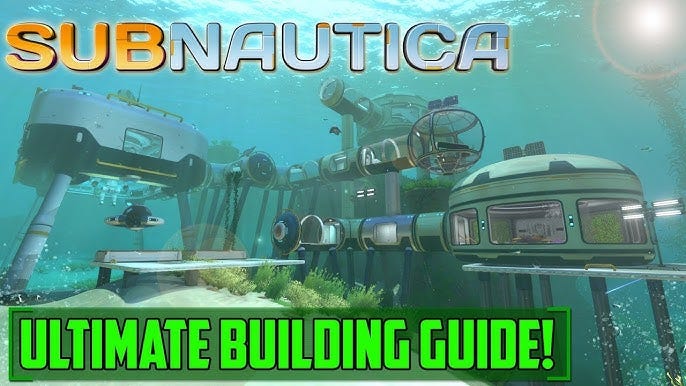
This is not unlike gardening.
My cousin invited my wife and I over for his second child’s first birthday. He showed me his Carolina Reaper plants. What’s the point? He’s got more hot peppers than any hundred people need. These peppers are so hot you can’t really do much with them, as they tend to dissolve the lining of your stomach and set your eyeballs on fire. But why? Because it’s cool. It’s like building an upgraded base-defense turret in Roblox (I’m just assuming there are base defense turrets in Roblox, I’ve never actually played.) Sometimes, it’s cool just to say you did a thing. Then you move on to the next cool thing.
What if instead of rushing from one task to the next, as they have you doing in my favorite RPGs, we approach life more like these sandbox, open world games? One of my favorite games in that category is Elite: Dangerous. This is a space simulation that is 1:1 scaled to the Milky Way galaxy. Yes, there are 200 billion stars you can visit in that game. It’s insane.
I played the hell out of that game after my divorce.
I would get tired of humanity and just fuck off into the stars for a few weeks, exploring uncharted worlds, flying tens of thousands of lightyears, and then wandering back to the inhabited bubble of space to sell my star charts, refuel, repair, and fly back out into the black.
Why? Because it was cool.
Life can be like a river, rushing from one trial to the next, always ending in the same destination, and contained within solid guardrails. There are millions of rivers in the world, each representing a different life path you could follow. Some rivers are slow and meandering, weaving through bogs and swamps. Others are fast and furious, like the Colorado. Some are shallow, some deep, some hot, some cold. There’s nothing wrong with approaching life like a river.
But all rivers end.
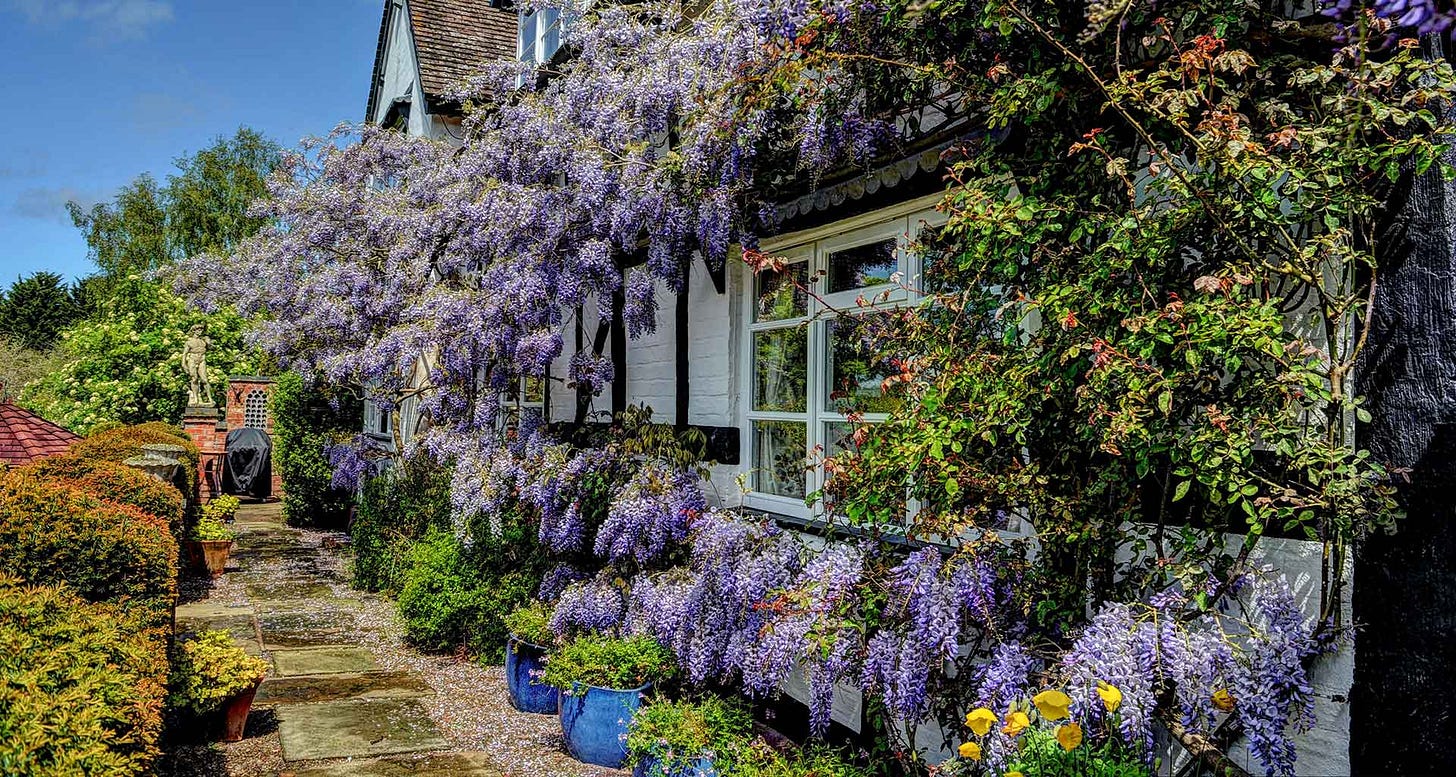
Gardens, however, just change and evolve. They adapt with the seasons and go through cycles. But they are also infinitely plastic: they can take on any shape or form you wish. Pick a different set of annuals this year? Sure! Move some pots and statues around? Sure! Add a water feature? Go for it! Build a retaining wall? Follow your heart!
Rivers have no such options. You find the line, you pucker up, and you barrel through.
Both gardening and white water rafting require a lot of skills and knowledge. They are fundamentally different hobbies, though! If you approach life like a river, you’ll need to understand how to read the river, stay afloat, get yourself out of a hydraulic (this is a sort of aquatic sinkhole that drowns people by pinning them underwater), and how to titrate your energy expenditure.
However, if you approach life like a garden, you take your time, cultivate different areas, and plan ahead differently. Caring for different cultivars requires just as much skill as navigating a river, albeit an entirely different kind of skill. You’ll need to pay attention to the seasons, the soil, and learn to read your plants based on their needs and preferences.
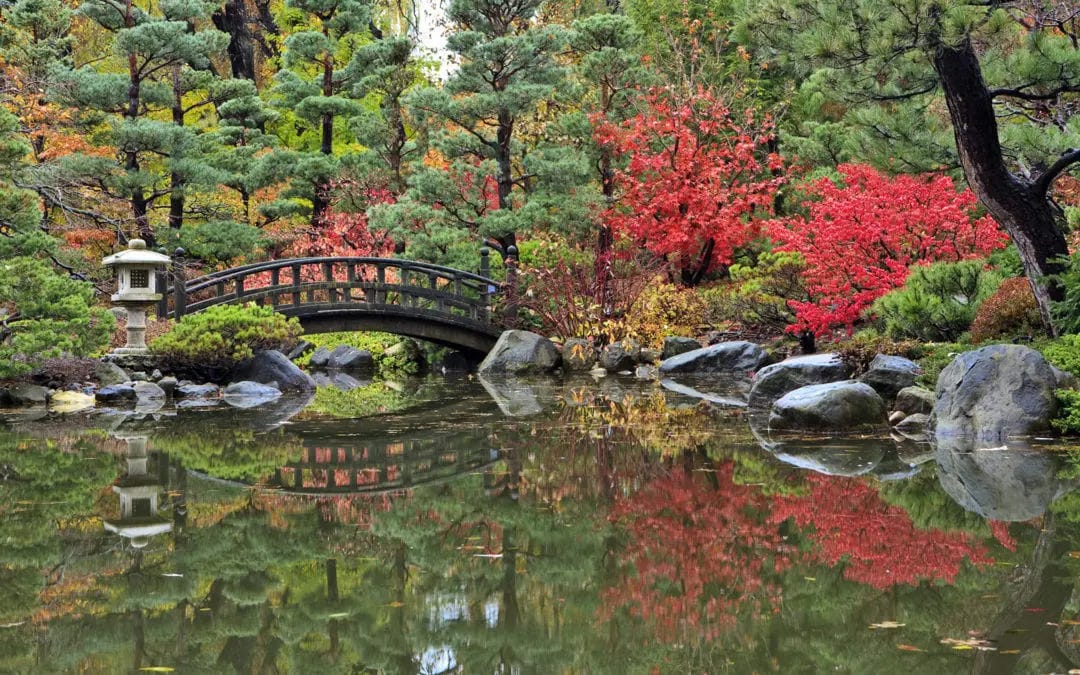
Years ago, during her ascendency, it was said that Lady Gaga “art directed” her own life, and that everything you saw was a carefully curated plan to maximize her stardom. From her PR stunts, like her “meat dress” to carefully timed documentaries featuring her doing nude artistic exercises to get in touch with her creativity, everything was planned. Like a garden. She touched the public with particular timing and engagements, just like weeding and watering a garden, to generate the impact she wanted.
Zendaya is presently taking a page directly from her book.
Zendaya shows up to the red carpet in elaborate outfits, and was extremely deliberate in her rise to fame, going to fashion shows and parlaying every asset she had. She art directs her life now, too. Both women are extremely articulate and forthright about the deliberateness of their rise to fame.
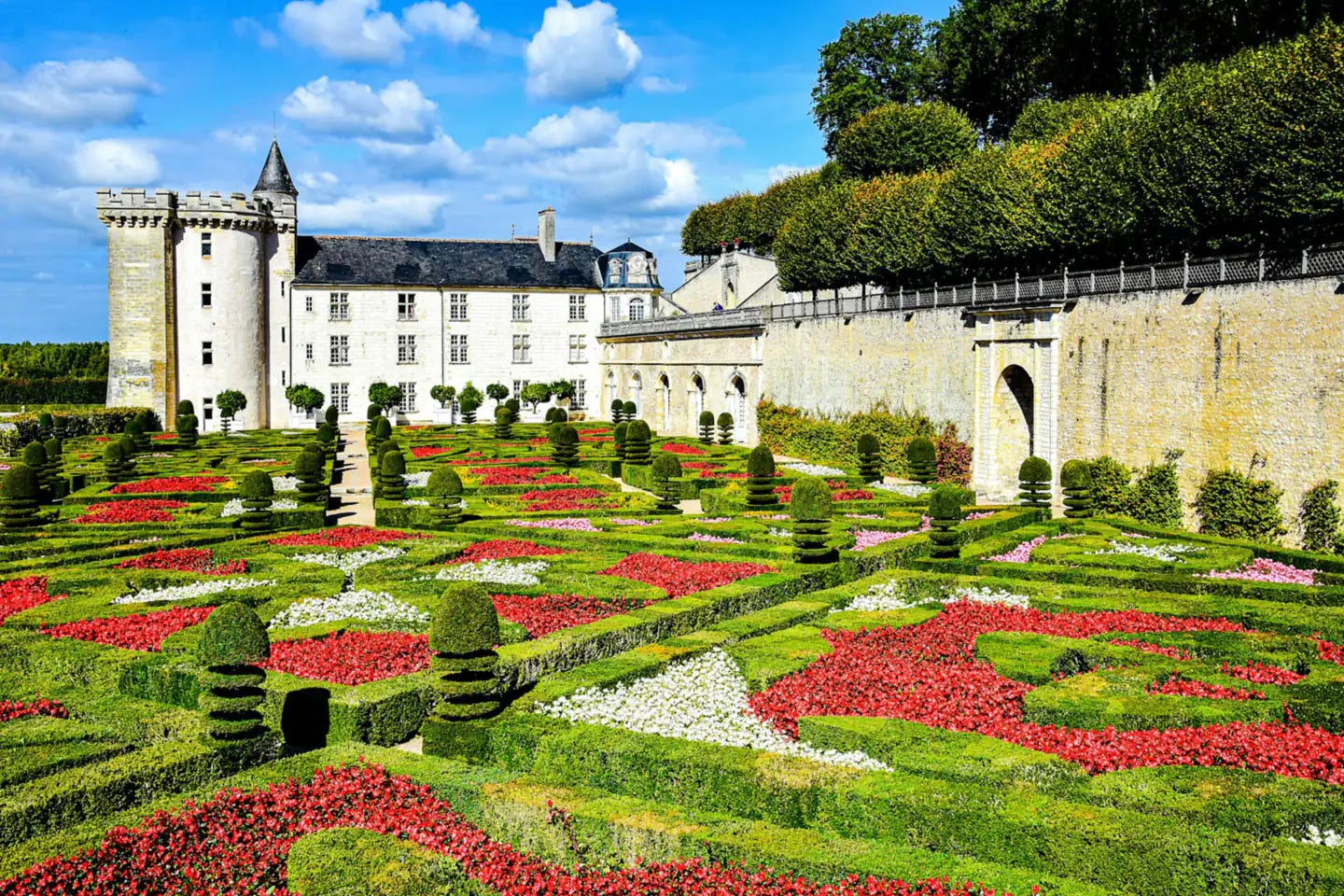
As I’ve been engaging with life differently, embodying and living that “post-AGI lifestyle” I realized that I was still treating life like a raging river, rapidly going from one mission to the next.
That’s why I kept burning myself out. That’s why I had to take a break from YouTube and AI. I was still mission-oriented, wanting to dominate and master every quest, one after another. But if I truly expect to live to see my five hundredth birthday, what’s the rush? Wouldn’t it be more enjoyable, and sustainable, to approach life like a garden? Like a base-building exercise in Subnautica?
It is now 3:32AM as I’m wrapping up this blog post. I’m awake, I suspect, because this idea hit me like a ton of bricks. I had a bunch of frenetic dreams, which usually means my brain is playing with new ideas. This is important.
By viewing life more like a garden, I realize that I’ve been slowing down and thinking about things like my health and diet in this fashion. There’s no final goal, no evolution to Charizard, no XP at the end of the game. The point of this game is to just keep playing. Relationships, work, food, exercise, and impact. These are all just areas of my garden that I tend to, one day after the next. Sometimes I neglect some areas, other times some, like my health, need a lot of TLC.
Maybe I’ll get back on the river one day. After all, I expect to have a long time to figure it out. But in between trips down the river, there can be time to smoke a few cloves and pull out some weeds.

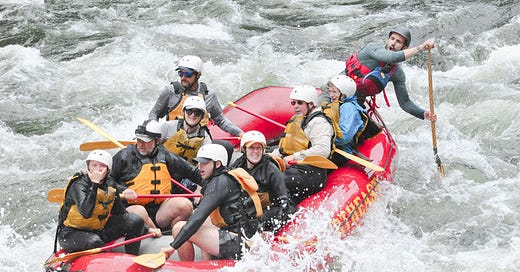




Evolve is my word for the year and your post hit home for so many reasons. Seeing life as a garden instead of a river resonates. It’s hard for me to define how to tend my garden but I’m getting there - thank you. I also have a question about your learning community and how it could be useful to me personally as I’m in the legal world and I’m trying to plan and learn etc. Does it include legal services peeps too?
Good post thanks Dave, I like the sentiment.
Maybe time to “stop and smell the flowers”
Cheers